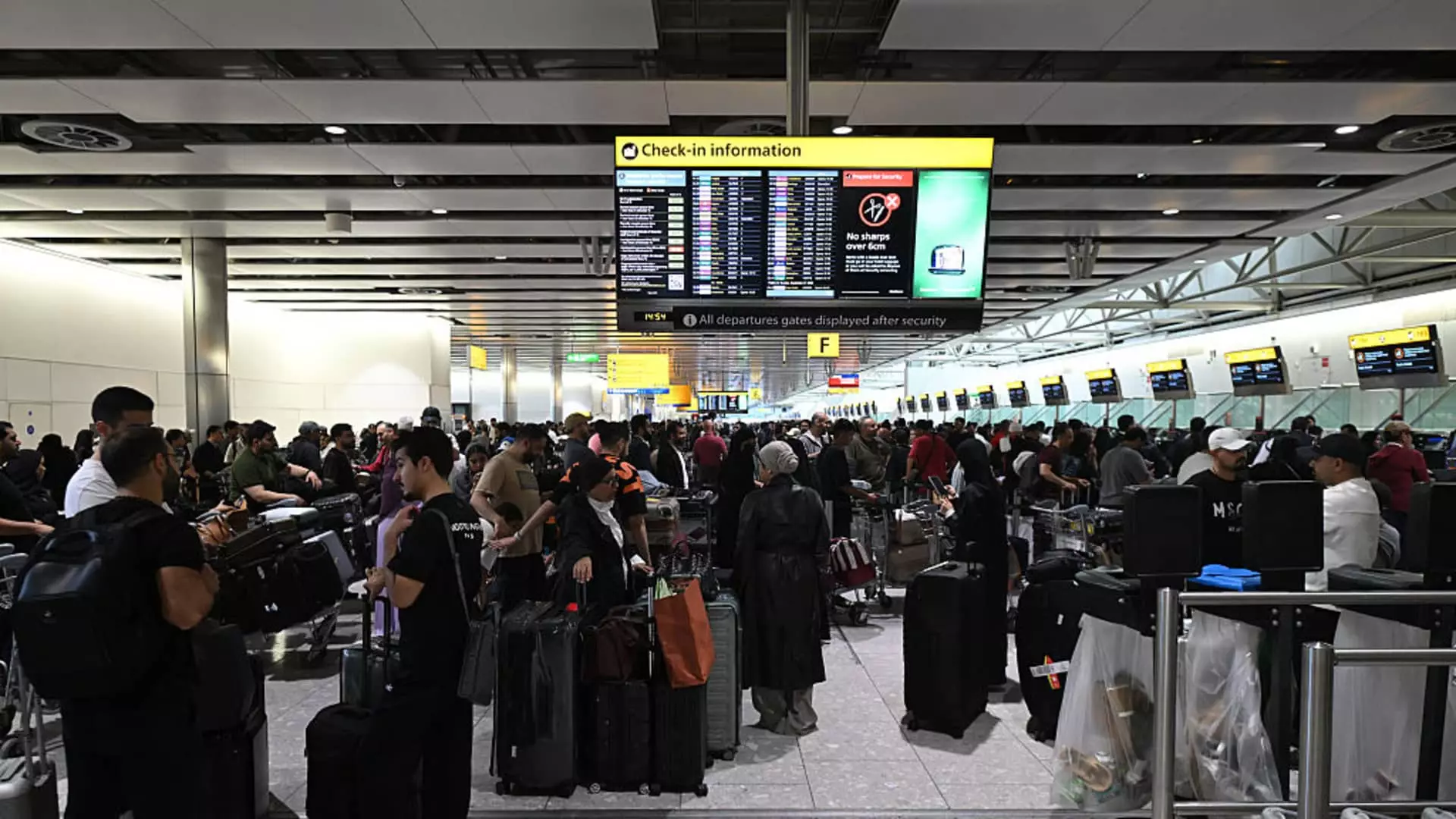Recent days have laid bare the alarming fragility of Europe’s aviation sector’s digital backbone. A cyberattack targeting Collins Aerospace, a key provider of check-in and boarding systems, has caused widespread turmoil at major airports like Heathrow, Brussels, and Berlin. This incident is more than just an isolated technical glitch; it exposes the inherent vulnerabilities within a heavily digitized system that we increasingly rely on for our daily routines. The fact that essential airport functions—check-in, baggage handling, and passenger management—depend on complex, networked software underscores how unprepared many institutions are for malicious cyber threats.
While the immediate impact manifests as delays, cancellations, and frustrated travelers, the deeper consequence lies in the erosion of trust. When digital systems are compromised, the ripple effects can destabilize entire travel networks, disrupt economies, and create chaos at an unprecedented scale. It is a stark reminder that our reliance on interconnected technology has outpaced our capacity to defend it comprehensively. This vulnerability not only jeopardizes operational continuity but also reveals that in a world governed increasingly by digital processes, security gaps in one node can threaten vast systems across multiple nations.
The Illusion of Resilience and the Need for Urgent Reform
Some industry officials have tried to downplay the incident, suggesting that manual backups and contingency plans mitigate the damage. But this is a fragile comfort that disguises a much more troubling reality: that much of our critical infrastructure operates on digital systems that are inherently susceptible to cyber sabotage. The fact that airports are forced to revert to manual procedures—longer, less efficient, more prone to human error—exposes a dangerously superficial level of preparedness.
This incident underscores a larger systemic problem: there has been insufficient investment in cybersecurity resilience within the aviation industry. The assumption has often been that existing security measures are enough, yet recent breaches prove otherwise. This is a stark failure—we are gambling with vulnerable systems that are crucial to economic vitality and public safety.
To truly safeguard our airports, we must move beyond superficial quick fixes and adopt a comprehensive approach that emphasizes proactive cybersecurity measures, continuous system updates, and robust backup protocols. It’s not enough to react when disaster strikes; we need a strategic, defensive posture rooted in awareness, investment, and international collaboration.
Cybercriminals Exploiting Weaknesses: A Symptom of Broader Failures
The pattern of cyberattacks targeting industries with heavy reliance on digital platforms indicates a systemic flaw in how organizations perceive and prioritize cybersecurity. Companies like Jaguar Land Rover and retail giants such as Marks & Spencer have already suffered heavily from breaches, losing profits and damaging consumer confidence. Aviation, as a high-stakes industry intertwined with national security interests, becomes an even more attractive target for cybercriminals and state-sponsored actors alike.
What’s particularly alarming is the manner in which these attacks exploit vulnerabilities within supply chains—third-party vendors, service providers, or software platforms that become weak links. When one link in this chain is compromised, entire networks can be brought down almost instantly. This phenomenon underscores the urgent need for holistic security strategies that encompass not only core systems but also the entire supply and service ecosystem.
We are essentially caught in a digital arms race—those with malicious intent are becoming increasingly sophisticated in their tactics, while organizations remain largely reactive, patching vulnerabilities after breaches occur. Unless there is a fundamental shift towards proactive, collaborative cybersecurity efforts, incidents like the Collins Aerospace attack will become the harbingers of more severe disruptions.
A Call to Action: Investing in a Safer Digital Future
It is clear that the current cybersecurity approach in European aviation is insufficient and needs a radical overhaul. Governments, airlines, and technology providers share a collective responsibility. Enhanced information sharing, standardized security protocols, and mandatory regular audits should become the norm rather than exception. The current reactive stance not only endangers operational stability but also undermines public confidence in air travel—a sector already burdened by geopolitical tensions and logistical challenges.
Furthermore, the industry must embrace a culture of resilience, where cybersecurity is integrated into every aspect of operations. Investing in advanced threat detection systems, employing AI-driven security analytics, and fostering international cooperation to combat cross-border cyber threats are essential steps. These initiatives must be complemented by public policy reforms that incentivize transparency and rapid response.
While some may argue that security measures are costly or that disruptions are inevitable, the reality is that the cost of inaction far outweighs the investment needed to bolster defenses. We are at a crossroads where complacency could lead to catastrophic consequences. It’s time to prioritize cybersecurity not as an afterthought but as an uncompromising pillar of our infrastructure’s integrity. Only through concerted, informed, and sustained efforts can we hope to shield our airports and the millions of lives relying on their safety and efficiency from the ever-looming threat of cyber devastation.

